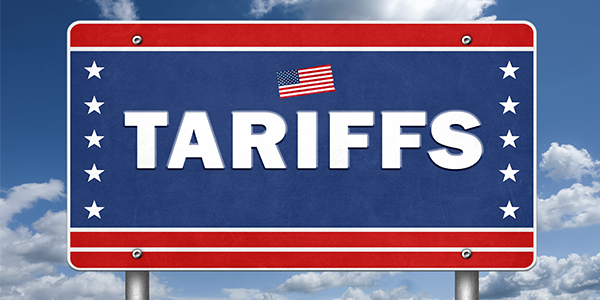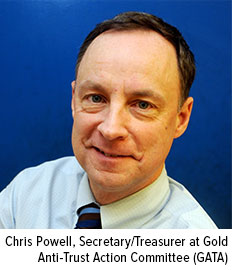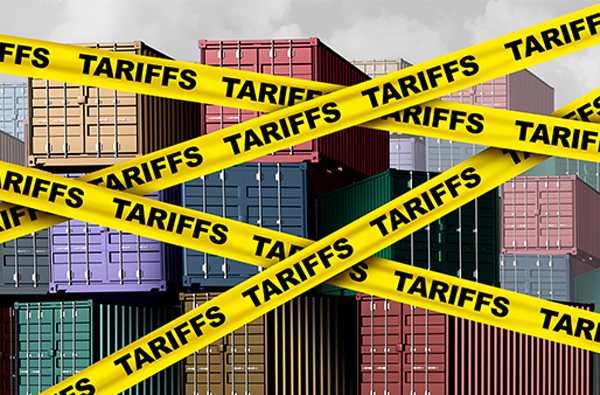

How to Unrig the Gold Market, According to GATA’s Chris Powell
In an earlier post, I gave you a sneak preview of my interview with Chris Powell, secretary/treasurer at Gold Anti-Trust Action Committee (GATA). For 20 years now, Chris and others at GATA have made it their mission to expose collusion by international financial institutions to control the price and supply of gold.
 In an earlier post, I gave you a sneak preview of my interview with Chris Powell, secretary/treasurer at Gold Anti-Trust Action Committee (GATA). For 20 years now, Chris and others at GATA have made it their mission to expose collusion by international financial institutions to control the price and supply of gold.
In an earlier post, I gave you a sneak preview of my interview with Chris Powell, secretary/treasurer at Gold Anti-Trust Action Committee (GATA). For 20 years now, Chris and others at GATA have made it their mission to expose collusion by international financial institutions to control the price and supply of gold.
Below are highlights from the interview. I have to say that during much of our conversation, my jaw was on the floor. I don’t want to say much more than that! Read on, and remember to share widely.
Tell us about GATA’s background and what it does.
GATA was founded in 1999 to expose and litigate against the longstanding Western central bank policy of suppressing the price of gold. At first we weren’t even sure if it was Western banks that were doing it. But after a year or so of research and investigation, we concluded that the bullion banks were operating surreptitiously as brokers for governments, giving cover to their intervention in the gold market. At the time, we had a law firm advise us that this rigging was very likely authorized by the Gold Reserve Act of 1934, as amended since then, and as such, there may not be grounds to sue the government directly over gold price manipulation.
We went ahead and filed suit in 2001 anyway, in the U.S. District Court in Boston. We had a consultant, a Harvard-trained lawyer and gold investor, who brought a case against the Bank of International Settlements (BIS), the U.S. Treasury and various bullion banks.
One particular hearing I attended that year produced a remarkable admission from an assistant U.S. attorney. In short he said that, while the government was not admitting to the complaint, it nevertheless had the power and authority to do all the things the suit complained of—manipulating the price of gold, in other words. I made a record of this admission and put out a press release. The lawsuit was ultimately dismissed by the judge on technical jurisdictional grounds.
Having lost a little hope of suing the government directly, we determined that the best course of action going forward was to try to publicize our findings. We’re convinced that the Gold Reserve Act gives the U.S. government, particularly the Treasury Department and the Exchange Stabilization Fund (ESF), the unrestricted authority to intervene in and secretly rig any market in the world. Our work now is simply to expose this policy to as large an audience as possible.
On a practical level, how does manipulation like this occur on such a global scale?
It’s done largely in the futures markets. It’s also done in the London over-the-counter (OTC) market. The mechanisms are gold swaps and leases between central banks and bullion banks, and through the sale of futures contracts.
We’ve seen a number of flash crashes in the price of gold, but lately they’ve been happening every few weeks. Somebody will dump a billion dollars or more of gold futures contracts in New York. That can be achieved only by someone with infinite resources and money, who also has a powerful interest in suppressing the price of gold. Nobody interested in making good money would dump that much gold all at once. He would sell it gradually over a period of time. I think these flash crashes are irrefutable evidence of price suppression.
Are there any public records that point to all of this?
Yes. There’s all sorts of material in the Treasury Department and Federal Reserve archives about gold price suppression being U.S. policy. Jelle Zijlstra—the former president of the Netherlands’ central bank, who simultaneously served as president of the BIS—wrote in his memoirs that the gold price has always been suppressed at the behest of the United States through international action. You can go back to the years of the London gold pool in the 1960s, where the control of the gold price through international action was a matter of public record, operating through the Bank of England (BoE).
A very remarkable transcript exists of a meeting in April 1974 between Secretary of State Henry Kissinger and Thomas Enders, the assistant under secretary of state for economic and business affairs. Enders explains to Kissinger that U.S. government policy is to drive gold out of the world’s financial system and prevent European governments from remonetizing the metal in any way. The purpose of this policy is to support the U.S. dollar as the world reserve currency, and if not the dollar, then the International Monetary Fund’s (IMF) special drawing rights (SDR).
 The most compelling evidence, I believe, are letters sent by Representative Alex Mooney of West Virginia to the Federal Reserve, Treasury Department and U.S. Commodity Futures Trading Commission (CFTC). Mooney asked the Fed and Treasury to identify which markets they’re secretly trading in, and to explain the purposes of this trading. Fed Chair Jerome Powell essentially refused to answer the question, as did the Treasury. Mooney asked the CFTC to state whether manipulation trading in the futures markets undertaken by the U.S. government or its agents or brokers is subject to the CFTC’s jurisdiction, or whether such manipulation is actually legal or exempt from ordinary commodities law. The CFTC refused to answer the question.
The most compelling evidence, I believe, are letters sent by Representative Alex Mooney of West Virginia to the Federal Reserve, Treasury Department and U.S. Commodity Futures Trading Commission (CFTC). Mooney asked the Fed and Treasury to identify which markets they’re secretly trading in, and to explain the purposes of this trading. Fed Chair Jerome Powell essentially refused to answer the question, as did the Treasury. Mooney asked the CFTC to state whether manipulation trading in the futures markets undertaken by the U.S. government or its agents or brokers is subject to the CFTC’s jurisdiction, or whether such manipulation is actually legal or exempt from ordinary commodities law. The CFTC refused to answer the question.
I think these agencies’ refusal to answer Mooney’s questions is quite revealing. And notably, mainstream financial journalists don’t find any of this curious. They have a rule never to put a critical question to any central bank about anything. Theoretically, somebody could do it. It’s being attempted by alternate news agencies and research organizations, but you can’t get an answer. That’s a good indication, I believe, that central banks are doing things they don’t want the markets to know about.
My next question has to do with central banks and their consumption of gold. They’ve been net buyers since 2010. The United States continues to be the single largest holder of gold of any institution on the planet. How do we reconcile that? If they own all this gold, wouldn’t it go against their self-interest to suppress its price?
That seemed to be a paradox to GATA some years ago, but we don’t believe it is any longer. To suppress the price of gold, you need a certain amount of inventory to knock the market down. You can’t do it entirely through the naked shorting that they do in the futures market. You always need to be bleeding a certain amount of the metal into the market to maintain the appearance of a gold market. You can’t just be trading paper all the time—it’s not enough.
The U.S. economists Paul Brodsky and Lee Quaintance wrote a paper a few years ago that floats a plausible hypothesis of what’s going on. The two hypothesized that the policy in recent years has been to redistribute world gold reserves among central banks so that those banks that have been overweight in U.S. dollars and Treasuries could hedge themselves in anticipation of an inevitable devaluation of the dollar and revaluation of gold. Central banks, the two allege, intervene together in the futures market to drive the nominal price down to facilitate easy acquisition of gold. They would prefer to keep the public out of acquiring the metal.
Full disclosure, I don’t have any particular evidence from government sources that confirms Brodsky and Quaintance’s hypothesis. But it certainly fits the facts as we understand them.
As you likely know, a JPMorgan trader is awaiting sentencing right now for his participation in gold price rigging. What’s your reaction to this?
His sentencing has been delayed twice now. It was delayed again the other day for another six months.
I’m not sure what to make of it, to be honest. There’s some confusion here because a few years ago, the chief executive of JPMorgan, Jamie Dimon, and the woman who was running its commodities desk at the time, Blythe Masters, both gave interviews saying that JPMorgan has no position of its own in the monetary metals markets. They were trading them only for clients. Of course, nobody in journalism followed up by asking Dimon or Masters who the clients were. I would have wondered if the bank was acting as the broker for the U.S. or Chinese government. That was certainly implied from the answers they gave.
Now this trader, John Edmonds, apparently had to admit that he was rigging the gold and silver markets while trading at JPMorgan. He was allegedly doing it with the knowledge and counsel of his superiors, and if it were done on behalf of the government, presumably it’s legal under the Gold Reserve Act. But as Charles Peters, former editor of the Washington Monthly, used to say: “The scandal is never what’s illegal. The scandal is what’s perfectly legal.”
So why is Edmonds being prosecuted? Because he was front-running government trades? Was he doing it just for himself? I can’t imagine the Justice Department would be prosecuting him if his trading was being conducted on behalf of the U.S. government.
Where do you think gold prices would be right now if not for this manipulation? What’s the true value of gold?
The true value of gold is whatever our free market wants it to be. Our attitude toward money is very libertarian. Let there be free markets and currencies, and if governments are intervening, they should be transparent about what they’re doing.
Having said that, the disparagement of gold for years is that its price has not kept up with inflation. Everything keeps up with inflation. That in itself is pretty powerful evidence of government intervention. It’s not keeping health insurance costs and medical care prices down. It’s not keeping college tuition down. It’s not keeping grocery prices down. How come gold is the only thing that doesn’t keep up with inflation? Silver, too? All of the traditional ratios of monetary metals values compared to stock market levels and other prices have been thrown off in recent years because of government intervention.
So what would those prices be if the traditional ratios were enforced again? I can’t say for sure, but obviously they would be far, far higher than they are today. And the government knows this. If the government ever got out of the futures market and abandoned its manipulation scheme, metal prices would remonetize in as little as a week.
I’ll add that if you want the gold or silver price to go up, you’ve got to buy real physical metal. Take it out of the banking system and weaken the futures market, which is where the manipulation takes place.
If readers are interested in learning more, where should they go?
They can go to our site, GATA.org. In the upper right-hand side, visitors can subscribe to our daily newsletter, the “GATA Dispatch.” That’s absolutely free. On the left, in the “Articles” section, you’ll find a link to “The Basics” and “Documentation.” All of the documentation of gold price suppression and secret intervention in gold markets by governments is contained there. And if they’re searching for anything in particular, I’d be happy to help them or refer them to someone who can. They can just email me at cpowell@gata.org.
Thank you for your time, Chris! It was a pleasure.
The pleasure was all mine.
For more on the gold market, subscribe to our award-winning Investor Alert.
All opinions expressed and data provided are subject to change without notice. Some of these opinions may not be appropriate to every investor. By clicking the link(s) above, you will be directed to a third-party website(s). U.S. Global Investors does not endorse all information supplied by this/these website(s) and is not responsible for its/their content.
































